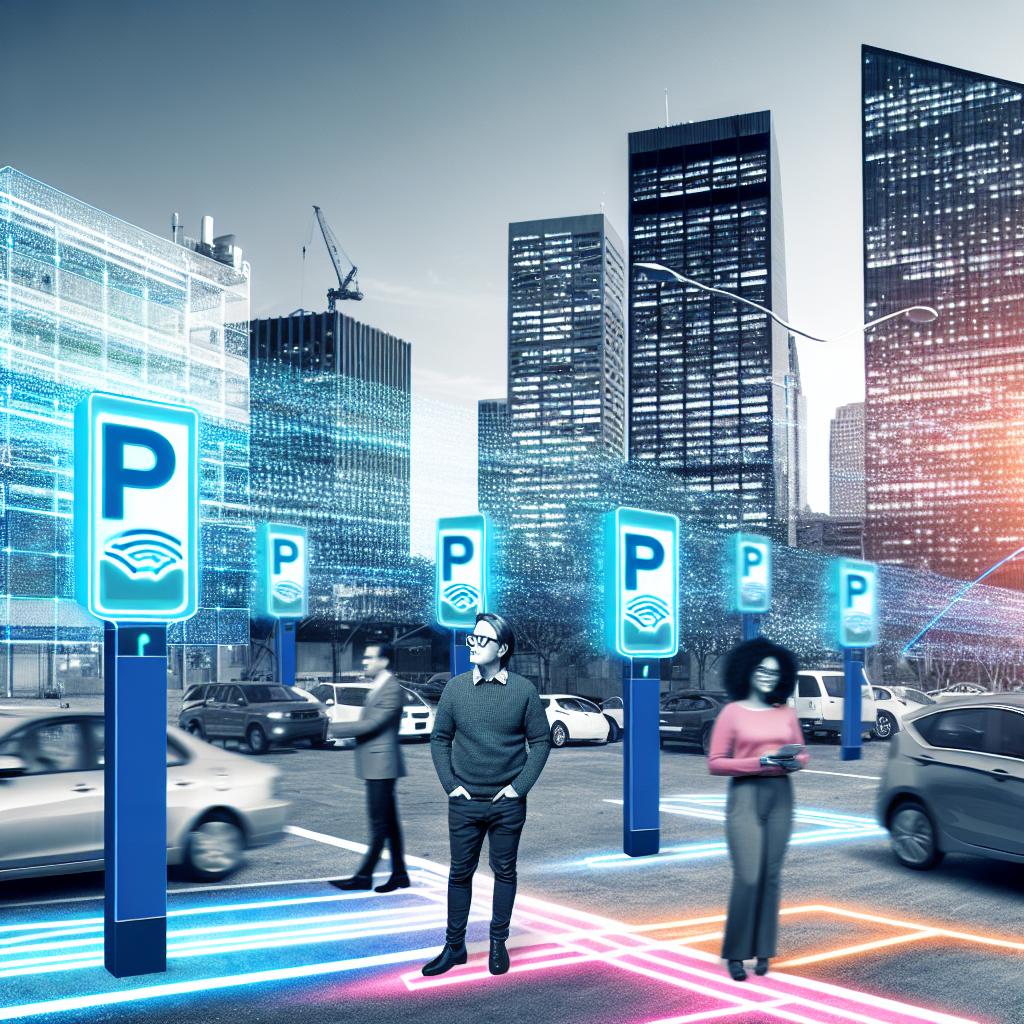Efficient Parking Solutions: The Power of IoT
Discover how IoT technology is revolutionizing smart parking systems and optimizing urban parking solutions.
The Evolution of Parking Systems
Parking systems have come a long way in their evolution, from traditional manual methods to smart automated solutions.
In the past, finding a parking spot in a busy urban area was a daunting task, often leading to frustration and wasted time. However, with advancements in technology, parking systems have been transformed to provide efficient and convenient solutions for both drivers and parking lot operators.
The introduction of IoT technology in parking systems has played a crucial role in this evolution. By connecting various components of a parking system, such as sensors, cameras, and payment terminals, IoT enables real-time data collection and analysis, leading to improved parking management and user experience.
Benefits of IoT in Smart Parking Solutions
IoT brings numerous benefits to smart parking solutions, making them more efficient and user-friendly.
One of the key advantages of IoT in smart parking is the ability to provide real-time information on parking availability. By using sensors to monitor parking spaces, drivers can easily find vacant spots through mobile applications or electronic signage, reducing the time spent searching for parking and minimizing traffic congestion.
Additionally, IoT technology enables seamless payment and ticketing systems. Drivers can make cashless payments through mobile apps or connected devices, eliminating the need for physical tickets and reducing the risk of lost or damaged tickets.
Moreover, IoT allows for effective parking space utilization. By analyzing parking data, operators can identify patterns and trends, optimizing parking lot layouts and maximizing space utilization. This not only improves efficiency but also helps reduce the environmental impact of urban parking by minimizing the need for additional parking structures.
Implementation of IoT in Parking Management
The implementation of IoT in parking management involves the integration of various components to create a connected and intelligent parking system.
Firstly, sensors are installed in parking spaces to detect the presence of vehicles. These sensors can be embedded in the ground or attached to parking meters, transmitting real-time data to a central server.
Next, cameras and image recognition technology can be utilized to monitor parking areas and detect any unauthorized or illegal parking activities. This enhances security and enforcement in parking facilities.
Furthermore, communication networks are established to connect the different components of the parking system. This allows for seamless data transfer and communication between sensors, payment terminals, and mobile applications.
Finally, user-friendly mobile applications and digital signage are developed to provide drivers with real-time parking information, navigation assistance, and convenient payment options.
Future Trends in Smart Parking Technology
The future of smart parking technology looks promising, with several trends expected to shape the industry.
One of the key trends is the integration of artificial intelligence (AI) into parking systems. AI algorithms can analyze parking data to predict parking demand, optimize parking space allocation, and provide personalized recommendations to drivers.
Another trend is the adoption of advanced payment methods, such as mobile wallet integration and automatic license plate recognition (ALPR) for seamless entry and exit from parking facilities.
Furthermore, the use of smart parking guidance systems will become more prevalent. These systems utilize real-time data and intelligent algorithms to guide drivers to available parking spaces, reducing congestion and improving the overall parking experience.
Additionally, the development of smart city initiatives will further drive the evolution of smart parking technology. Integration with other urban infrastructure, such as traffic management systems and public transportation, will create a more connected and efficient urban mobility ecosystem.
Overall, the future of smart parking technology is focused on enhancing user experience, optimizing parking space utilization, and contributing to sustainable urban development.
Impact of IoT on Urban Mobility
The impact of IoT on urban mobility goes beyond just parking systems. IoT technology has the potential to transform the way people move within cities, improving efficiency, reducing congestion, and enhancing overall mobility.
By integrating IoT into transportation systems, cities can create a connected network of vehicles, infrastructure, and data. This enables real-time traffic monitoring, predictive analytics, and intelligent routing, leading to smoother traffic flow and shorter commute times.
In the context of parking, IoT-enabled smart parking solutions contribute to better urban mobility by reducing the time spent searching for parking spaces and minimizing traffic congestion near popular destinations.
Moreover, IoT can facilitate the integration of different modes of transportation, such as public transit, ride-sharing services, and bike-sharing programs. By providing seamless connectivity and information sharing, IoT enables a more efficient and convenient multi-modal transportation experience.
Overall, the impact of IoT on urban mobility is transformative, paving the way for smarter, greener, and more accessible cities.




Leave A Reply